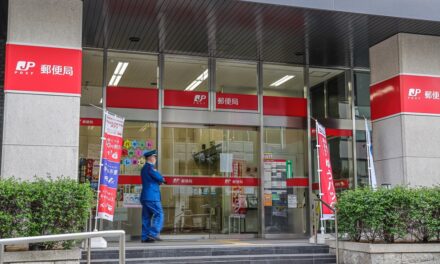
Ex-top banker Nishikawa to head key firm for Japanese postal system privatization
The government said Friday it has picked former Sumitomo Mitsui Banking Corp. President Yoshifumi Nishikawa as president of a holding firm to be established in October 2007 for the privatization of Japan's postal system.
The government expects Nishikawa, 67, who is known for his leading role in tackling the disposal of bad loans at banks, to show his expertise and leadership.
But his selection may be a shock for workers at Japan Post, the public corporation in charge of postal services, as the banking industry Nishikawa once represented is a strong critic of the state-run postal system, calling for a reduction in postal savings services.
At a news conference held to announce the appointment, Heizo Takenaka, minister of internal affairs and communications, said Nishikawa accepted the post in a meeting with Prime Minister Junichiro Koizumi on Friday.
Nishikawa, who also attended the press conference, expressed his resolve to push forward with the privatization, Koizumi's pet policy.
"I would like to create an original business model as a pioneer, rather than following existing bank models," Nishikawa said. "Unlike a public company, we, as a privatized company, should accept risks and make a success in business."
Asked why Nishikawa was selected, Takenaka said, "As a manager representing the financial world, Mr. Nishikawa possesses excellent management skills.
"I strongly believe he is the person who can complete such a tough task as postal privatization," Takenaka said.
Under the postal system privatization laws enacted last month, Japan Post, the public corporation in charge of postal services, will be split into four stock firms on Oct. 1, 2007, under a holding firm. The four firms will be privatized over a period of 10 years.
Three of the four will be tasked with taking over Japan Post's three major functions — postal savings, postal insurance and mail delivery. The fourth will provide a range of over-the-counter services at a large network of post offices across the nation.
Koizumi praised Nishikawa as an "appropriate person" to manage the holding company.
"It was fortunate that we could find an appropriate person," Koizumi told reporters at his office, pointing out that a person who is capable of steady management and can be endorsed by both Japan Post President Masaharu Ikuta and economic circles is eligible for the top post of the holding firm.
At a separate news conference, Chief Cabinet Secretary Shinzo Abe said Nishikawa is experienced in managing a big organization. "We expect him to manage it (the holding firm) in line with the purpose of our privatization and achieve results," Abe said.
Nishikawa, a former chairman of the Japanese Bankers Association, joined what was then Sumitomo Bank in 1961. The bank later merged with Mitsui Bank to create SMBC. After serving as SMBC president and president of Sumitomo Mitsui Financial Group Inc., he became special adviser to SMBC in June this year.
Nishikawa is likely to wield strong influence over the nation's economy because Japan Post manages a combined 340 trillion yen, with the entire postal system manned by 260,000 employees.
The government has also picked former Financial Services Agency Commissioner Shokichi Takagi as the top manager of a planned government-backed corporation charged with ensuring that existing postal savings and insurance contracts be honored even after the privatization.
The financial industry welcomed Nishikawa's selection.
"We hope that reform will be promoted under Mr. Nishikawa so that the original purpose of postal privatization can be realized," said Terunobu Maeda, chairman of the Japanese Bankers Association, who is also president of Mizuho Financial Group.
As the former head of the banking industry group, Nishikawa called for reducing the size of postal services in the course of privatization.
Business leaders also expressed hope that Nishikawa will use his management skills and expertise in privatizing Japan Post.
"Although he will be tasked with great duties, we hope he will do his best for postal privatization," said Hiroshi Okuda, chairman of the Japan Business Federation, the nation's biggest business lobby known as Nippon Keidanren.
Okuda previously said a person from the banking industry is not eligible for the top post of the holding company because the interests of the industry and the holding firm are in conflict.
In a related move, SMBC said Nishikawa will resign as a director at Rakuten Securities Co. and special adviser to the bank by the end of December.
Rakuten Securities is an online brokerage owned by SMBC and Internet shopping mall Rakuten Inc.
Nishikawa now serves not only as director at the Rakuten unit and consultant at Rakuten but also as outside auditor at Tokyo Broadcasting System Inc., while Rakuten and TBS remain in a standoff over Rakuten's proposal for its integration with the TV broadcaster.
Nishikawa told the press conference that he will remain as a TBS outside auditor for the time being.












